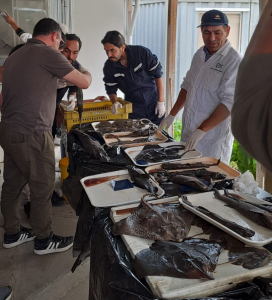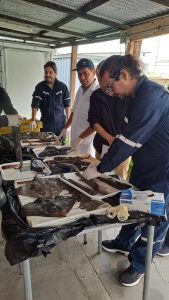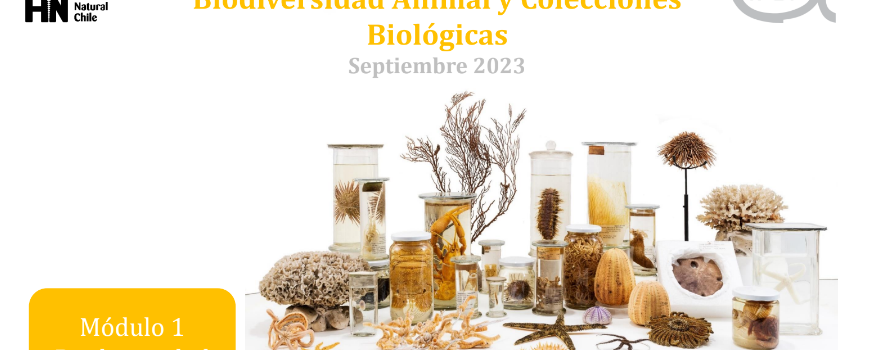IFOP Scientific Observers receive training in animal biodiversity and biological collections
October 26th, 2023 On September 26th, the first course, of several that will be developed, on animal biodiversity and biological collections was held at the Coquimbo headquarters by professional Catalina Merino Yunnissi, Collections Administrator, Invertebrate Zoology Area of the National Museum of History Natural. This course was framed within the agreement signed between the IFOP and the National Museum of Natural History of Santiago.
On September 26th, the first course, of several that will be developed, on animal biodiversity and biological collections was held at the Coquimbo headquarters by professional Catalina Merino Yunnissi, Collections Administrator, Invertebrate Zoology Area of the National Museum of History Natural. This course was framed within the agreement signed between the IFOP and the National Museum of Natural History of Santiago.
The activity included Scientific Observers participation from Demersal Crustacean Monitoring project and Discard Project. The objective was to provide information about the importance and role of biological collections for the registration and conservation of our biodiversity. country. Information was provided on specimens collection, preservation techniques, registration of information and appropriate materials for labeling, preparation and shipping of specimens. The training also covered the topic of conservation of biological collections, techniques to preserve biological material in perpetuity as fundamental activities of the museum.
Due to the spatial and taxonomic bias that exists in biological collections, it is vitally important that these cooperation agreements exist between institutions to add to the inventory and thus to the heritage of biological collections in Chile.
 Continuing with the training aimed at Scientific Observers, on September 27th and 28th, 2023, chondrichthyan identification and biology course was held by Professor Francisco Concha Toro, from Universidad de Valparaiso Marine Sciences and Natural Resources Faculty. In which general chondrichthyans biology and reproduction concepts were reviewed, as well as a look at taxonomy and identification. It focused mainly on demersal chondrichthyan species present in crustacean fishery catches. This course is the first of several that consider reinforcing the topic of species identification necessary for Scientific Observers in order to transmit new knowledge, develop new skills and new tools to improve the quality of information collection.
Continuing with the training aimed at Scientific Observers, on September 27th and 28th, 2023, chondrichthyan identification and biology course was held by Professor Francisco Concha Toro, from Universidad de Valparaiso Marine Sciences and Natural Resources Faculty. In which general chondrichthyans biology and reproduction concepts were reviewed, as well as a look at taxonomy and identification. It focused mainly on demersal chondrichthyan species present in crustacean fishery catches. This course is the first of several that consider reinforcing the topic of species identification necessary for Scientific Observers in order to transmit new knowledge, develop new skills and new tools to improve the quality of information collection.
